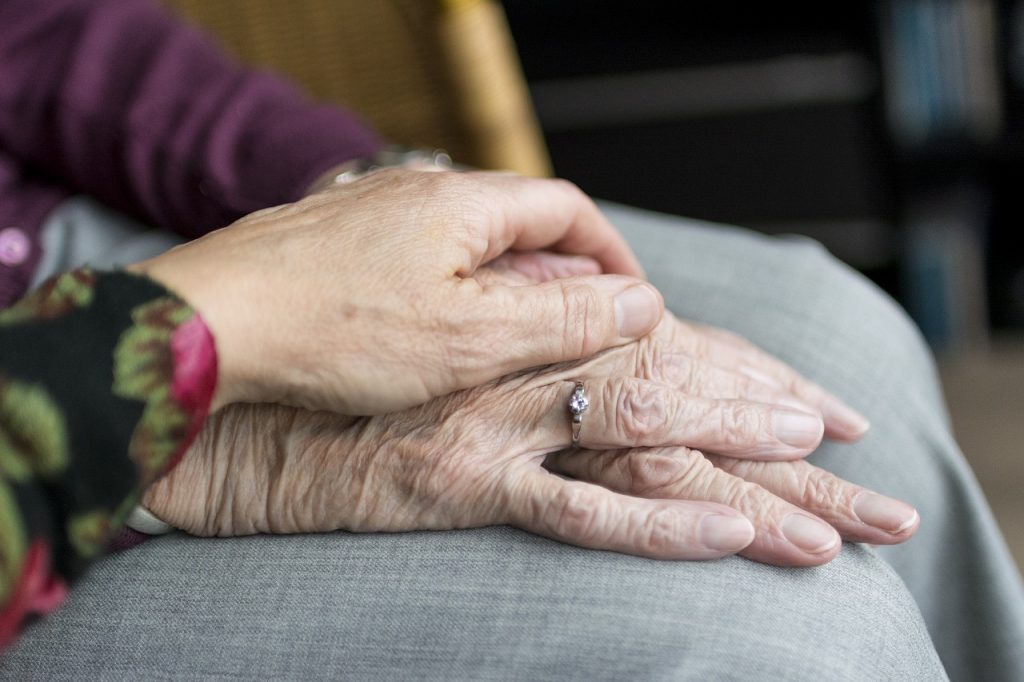As you’re aware, COVID-19 is currently disrupting lives across the United Kingdom, Europe, and the globe. We have created this guide of ‘Frequently Asked Questions’ to assist you during this anxious and uncertain period.
Please do not hesitate to visit our help centre if you would prefer to speak with someone regarding the below information.
The Government is advising that we all follow guidance issued by the NHS:
https://www.nhs.uk/conditions/coronavirus-covid-19/ The public are being asked not to go to the GP or even to call NHS 111 unless you are not able to manage your symptoms at home, your condition becomes worse or if your symptoms do not improve after 7 days.
The NHS has put in place measures to ensure the safety of all patients and
NHS staff while also ensuring services are available to the public as normal.
Stay at home if you have either:
A high temperature – you feel hot to touch on your chest or back.
A new, continuous cough – this means you’ve started coughing
repeatedly.
Do not go to a GP surgery, pharmacy or hospital.
You do not need to contact 111 to tell them you’re staying at home.
Testing for coronavirus is not needed if you’re staying at home.
Use the NHS 111 advice website about staying home, including how long to isolate for.
Use the NHS 111 online coronavirus service if:
You feel you cannot cope with your symptoms at home.
Your condition gets worse.
Your symptoms do not get better after 7 days.
Advice in other parts of the UK
Check your symptoms in Scotland
Check your symptoms in Wales
Northern Ireland: call 111
For region-specific information and advice in:
England visit nhs.uk
Wales visit phw.nhs.wales
Scotland visit nhsinform.scot
Northern Ireland visit HSC
If one person in any household has a persistent cough or fever, everyone living there must stay at home for 14 days.
Personal Assistants who are self-isolating are legally defined as being unfit to attend work. Therefore, they must notify you of their intention to self-isolate.
Your Personal Assistant has the right to remain away from work for a period of 14 days from the symptoms being identified.
Government guidance on staying at home due to a possible Coronavirus infection here:
https://www.gov.uk/government/publications/covid-19-stay-at-home-guidance
If your Personal Assistant is considered not to be fit for work, they are entitled to statutory sick pay (if eligible) from day one of the absence.
Statutory sick pay is payable to Personal Assistants if they are employees or workers (includes zero hours and casual workers) and have earned on average £118 per week over the last 8 weeks, and have given you the correct notice.
If the employee is not eligible you must provide them with the SSP1 form to explain why which will allow them to present a claim for possible benefits.
You can ask your payroll and/or support organisation with support regarding this.
The Government have announced that they will repay payments of SSP, up to 14 days, for each employee.
Statutory sick pay is currently paid at a rate of £94.25 per week, rising to £95.85 from 6th April 2020.
Usually, during sickness absence, you can ask the Personal Assistant for a medical certificate, after the first seven days of absence. Due to the circumstances of self-isolation however, it is not advisable that you request for such evidence due to current guidelines.
If your Personal Assistant is self-isolating due to another member of the household showing symptoms of the virus then you do not have the right to demand evidence of that individual’s sickness.
Employees have the right to take emergency leave to care for a dependant. This right includes the unexpected need to care for a child who cannot attend school.
The right exists for a reasonable time to allow the employee to make alternative arrangements and the leave is without pay. What is ‘reasonable’ will entirely depend upon the circumstances.
The Government have allowed placements for some children of key workers to continue. Key workers will include those caring for vulnerable people.
Some employees may be able to rely on family members or friends to help with childcare, but the chances are reduced more than usual as more people self-isolate or social distance for some time.
The risk of spreading infections to the high-risk category of persons, such as grandparents over 70 or with health conditions is one of the reasons the Government held back on school closures.
You are encouraged to have good communication with your employee to ensure you are satisfied they have a genuine need to be away from work.
Under the circumstances, it is expected that a high number of parents will not be able to attend work for some time and will rely on unpaid parental leave rights. If they are eligible for such leave you cannot allow them to suffer a detriment because of it.
You can contact your support provider or progress with your agreed contingency plan when your Personal Assistants are off work due to sickness.
If you employ other Personal Assistants, please check contracts of employment or consult with your support provider.
If you cannot find the support of other Personal Assistants, use of a domiciliary care provider may be an alternative route of support as an interim measure.
You must speak to your support team urgently if you cannot manage to implement your contingency plan.
The current guidance is that if one person in any household has a persistent cough or fever, everyone living there must stay at home for 14 days. The aim of this provision is as a preventative measure to suppress the spread of the virus.
You have an assessed need and therefore you’re absolutely entitled to receive your usual amount of support. Please contact your Social Worker/Support Provider.
If your Personal Assistant provides you with the support that would be classed as a ‘basic need’ then your Personal Assistant should continue to work by following guidance, providing they do not need to self-isolate.
Due to high demand, you should contact your support provider and local authority immediately if you require Personal Protective Equipment and clothing (PPE) where necessary as additional funds have or are being made to Local Authorities to fund this.
Assuming your Personal Assistant(s) are fit and able to undertake their duties, they should continue to provide you with support. Any updates with regards to information from the Government should be fully explained to the Personal Assistant. It is for the protection of everyone, including those members of the public.
Personal Assistants need to be mindful and remember that they should not remove any items from your home, including any protective equipment/clothing and they should notify you in order for you to order additional stock.
As you are in receipt of Direct Payments then any changes you make will need to be agreed with your funding body, usually the Local Authority.
You will need to discuss this with your support network as such a gap would usually result in termination of the contract on grounds of redundancy, as their work has diminished and they are no longer required. However, you probably will want and need to re-instate the employee once this period is over and so would not want the suspension of duties to be permanent.
Some general advice we can provide you:
Pay the employee in full whilst they are not attending work. You should seek authorisation from the local authority before making this decision.
Terminate the Personal Assistant’s contract on grounds of redundancy. Your employee would be entitled to a statutory redundancy payment if they have completed two years’ service. You would also need to pay the employee in full for any notice and annual leave which has been accrued but not yet taken.
If redundancy appears to be the last resort, the employee faces the permanent termination of employment and there is no way to simply cover their full wages then the final option is to lay them off by mutual agreement.
Due to the uniqueness of the circumstances at present, this may encourage a PA to go on a period of leave without pay, until such time as the 3 months’ has passed. In agreeing to a period of lay off, the employee will keep their continuity of service and know they can return to work at the end of the 3 months’.
Holidays also continue to accrue at the same rate that they did while the PA was working. You could offer in exchange for this agreement, to relax the rules on fidelity which would allow the employee to accept work elsewhere during the 3 months’.
Please remember that the Government are changing the law regularly to ensure they are taking the steps to protect the UK. It is possible that emergency legislation could be introduced that will allow you to lay off an employee without pay whether a contractual right exists or not. Please ensure you take advice if you are facing a long absence from your workers.
Where 12 weeks of absence isn’t a realistic consideration for you remember that the employee has accrued annual leave which can be used to give them time off with full pay.
If you use casual or zero-hours workers and work has not already been agreed in advance, you do not have to offer them work during this time.
Yes, you’re allowed to do this. The Government have made recommendations for certain individuals to stay at home, but it is not mandatory. If your employee continues to attend work, make a written record of steps you have taken to prevent the spread of the virus and increase your hygiene and health and safety procedures so that you are doing everything you can
An employee who isn’t sick but is refusing to attend work, in usual circumstances would be in breach of contract that would justify disciplinary action. However, under the circumstances, and given that they are acting upon Government guidance, it is far less likely that dismissal on such grounds would be reasonable but please seek legal advice regarding this.
For those who are pregnant and staying off work without pay, it is important to note that this could impact their rights to claim Statutory Maternity Pay (SMP) when their maternity commences. To be eligible for SMP the employee must have earned an average of £118 per week during the 8 weeks prior to the qualifying week (the 15th week prior to the due date). A period of 12 weeks with no pay whatsoever could interfere with her average earnings.
This issue may not stop them from taking the time out, but it is advisable for you to notify her of the risk. If they do not qualify for SMP, they will need to apply to the Government for Statutory Maternity Allowance. They can find details of this via the Jobcentre Plus.
If you genuinely have no use for your Personal Assistant, you may want to consider making them redundant as their work has diminished or perhaps
utilise them in other ways, if agreed by your funding source. Make sure you have carefully thought through any alternatives and seek advice before you decide and discuss with your PA. Asking the PA to make changes to their work is fine so long as your request is a reasonable and lawful order.
It is not fair to dismiss an employee because of a preference for someone else and could be viewed as discriminatory. However, due to restrictions and measures in place at the movement for vulnerable people, it may perhaps be relevant. It is important to take legal advice regarding this before taking any action.
Although every effort has been made to ensure all information provided is correct, this information should not be considered legal advice. If you require further information you should seek professional legal advice.
Although every effort has been made to ensure all information provided is correct, this information should not be considered legal advice. If you require further information you should seek professional legal advice.







